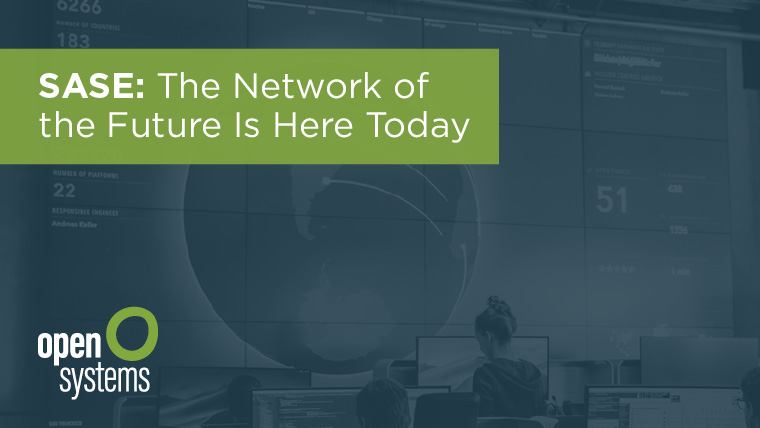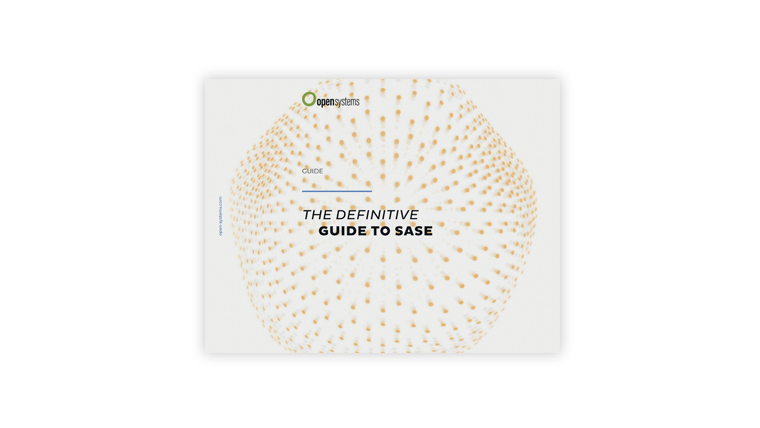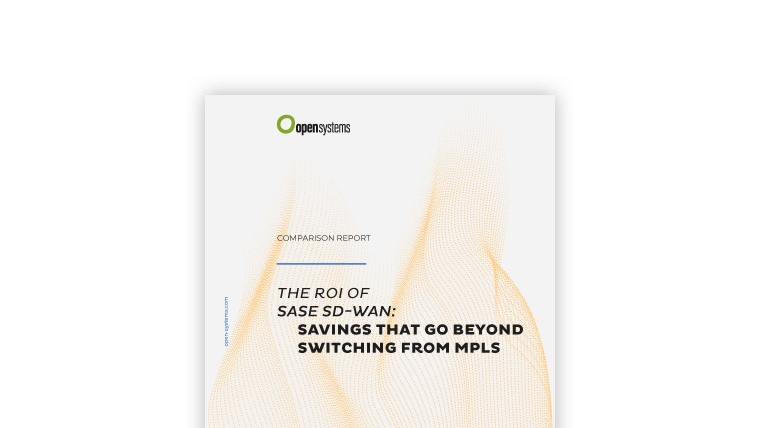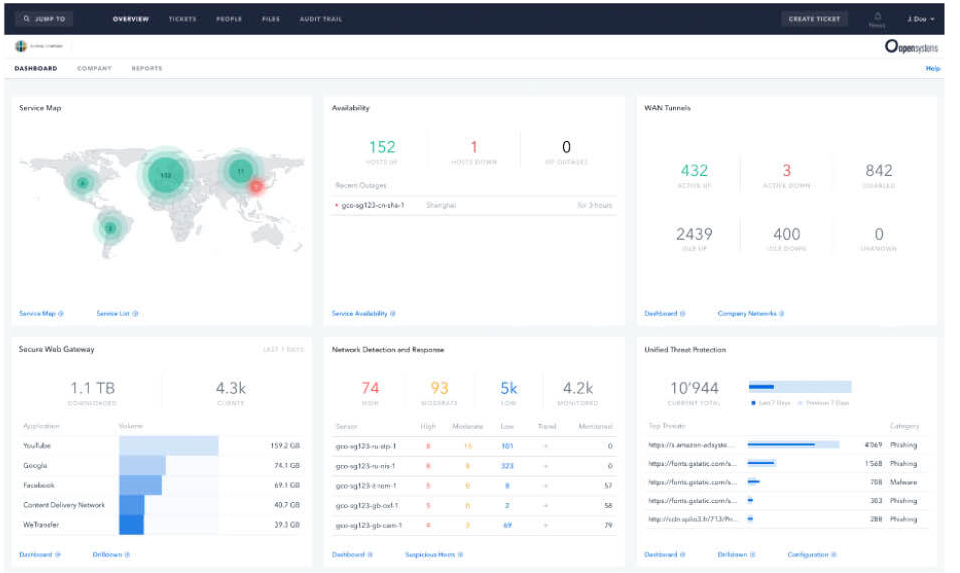What is DNS Filtering?
Eine Technologie, die dazu beiträgt, die Sicherheit der Benutzer zu gewährleisten, ist die Verwendung von DNS (Domain Name Systems/Services). DNS ordnet Domänennamen, wie OpenSystems.com, der entsprechenden numerischen IP-Adresse zu.
DNS ist für den Zugriff auf Webinhalte erforderlich. Der Inhalt kann nicht geladen werden oder der Zugriff wird nicht zugelassen, bevor der DNS-Prozess ausgeführt wird. Wenn die Website auf einer Blockliste steht, wird der DNS-Prozess angehalten und die Anfrage abgelehnt. Dadurch schützt DNS Filtering die Benutzer vor dem Zugriff auf schädliche Websites.

DNS FILTERING STOPPT ANGRIFFE, BEVOR SIE BEGINNEN
Die DNS-Filterung kann eine Website nach Domänennamen und IP-Adressen blockieren. Durch die Blockierung wird die Cybersicherheit gewährleistet:
- Blockieren bösartiger Websites mit Ransomware, Malware, Spyware, Viren usw.
- Stoppen Sie Drive-by-Angriffe, die das Gerät direkt beim Öffnen der Website infizieren, sodass der Benutzer nicht mehr reagieren kann.
- DNS Filtering stoppt Angriffe, bevor sie beginnen, einschliesslich Drive-by-Angriffe
- Blockieren von Phishing-Websites, d. h. gefälschten Websites, die darauf abzielen, Benutzerinformationen, einschließlich der Anmeldedaten, zu stehlen.
- Ein Beispiel wäre ein Nutzer, der auf eine E-Mail-Warnung eines gefälschten Online-Einkaufsdienstes oder Kreditkartendienstes antwortet, in der er aufgefordert wird, auf sein Konto zuzugreifen und verdächtige Aktivitäten zu überprüfen, wodurch er seine Anmeldedaten erhält.
- illegal sein könnte
- die Sicherheitsdaten eines Mitarbeiters kompromittieren
- gegen die Einhaltung von Vorschriften verstoßen
Bösartige Websites
Phishing-Websites
Websites mit verdächtigem Inhalt
Das Blockieren von Websites mit verdächtigen oder illegalen Inhalten verhindert, dass Benutzer versehentlich auf eine Website zugreifen, die Material enthält, das:
- Blockieren bösartiger Websites mit Ransomware, Malware, Spyware, Viren usw.
- Stoppen Sie Drive-by-Angriffe, die das Gerät direkt beim Öffnen der Website infizieren, sodass der Benutzer nicht mehr reagieren kann.
- DNS Filtering stoppt Angriffe, bevor sie beginnen, einschliesslich Drive-by-Angriffe
- Blockieren von Phishing-Websites, d. h. gefälschten Websites, die darauf abzielen, Benutzerinformationen, einschließlich der Anmeldedaten, zu stehlen.
- Ein Beispiel wäre ein Nutzer, der auf eine E-Mail-Warnung eines gefälschten Online-Einkaufsdienstes oder Kreditkartendienstes antwortet, in der er aufgefordert wird, auf sein Konto zuzugreifen und verdächtige Aktivitäten zu überprüfen, wodurch er seine Anmeldedaten erhält.
Das Blockieren von Websites mit verdächtigen oder illegalen Inhalten verhindert, dass Benutzer versehentlich auf eine Website zugreifen, die Material enthält, das:
- illegal sein könnte
- die Sicherheitsdaten eines Mitarbeiters kompromittieren
- gegen die Einhaltung von Vorschriften verstoßen
Laden Sie unser neuestes SASE E-Book herunter. Dieser neue Ansatz für die Vernetzung umfasst eine Reihe von vollständig integrierten, über die Cloud verwalteten Security-Services, die vor Ort oder in der Cloud mit zentral verwalteter Sicherheit bereitgestellt werden. Entdecken Sie Ihre Möglichkeiten:
- Verringerung der Komplexität und des betrieblichen Aufwands
- Benutzerfreundlichkeit / Transparenz für Anwender
- Mehr Sicherheit durch einen Zero-Trust-Netzwerkzugriff

CYBER-KRIMINELLE KÖNNEN DNS-SCHWACHSTELLEN AUSNUTZEN
Cyberkriminelle kennen die Sicherheitsmassnahmen von DNS Filtering und nutzen gezielt die DNS-Schwachstellen aus. Zu den wichtigsten DNS-Bedrohungen gehören:

DNS-Tunneling, bei dem SSH, TCP oder HTTP verwendet wird, um in DNS-Nachrichten einzudringen und Malware zu übertragen.
DNS-Hijacking, bei dem DNS-Nachrichten an einen anderen Domänennamenserver mit falschen Informationen weitergeleitet werden, um die Benutzer auf bösartige Websites umzuleiten.
DNS-Spoofing, bei dem eine IP-Adresse zurückgegeben wird, die nicht die beabsichtigte Website ist, sondern eine Website mit böswilligen Absichten.
Zufällige Subdomains, Domain Lock-up, NXDOMAIN und Phantom-Angriffe überlasten DNS-Dienste mit einem DoS-Angriff (Denial-of-Service).
DNS Filtering hat zwei Seiten: Es wehrt Cyberangriffe ab, ist aber auch anfällig für Bedrohungen. Zur Erkennung und Abwehr solcher DNS-Angriffe stehen zahlreiche Techniken zur Verfügung.
Ein cloudbasierter DNS-Anbieter sorgt dafür, dass Ihre DNS-Funktionalität geschützt ist. Diese Anbieter verfügen über ein grosses weltweites Netz von Nameservern. Ein DDoS-Angriff hat dabei kaum Aussicht auf Erfolg. Ein weiterer Vorteil ist: Durch das Hinzufügen zur globalen Blockliste wird Ihre Blockliste nicht nur umfangreicher und detaillierter, sondern auch kontinuierlich aktualisiert. Die Ergebnisse sind eine höhere Cybersicherheit für Benutzer und ein besserer Schutz vor raffinierten Angriffen und bösartigen Websites. Dabei liegt die Verantwortung für den Schutz und die Wartung des DNS beim Anbieter, nicht bei Ihnen.

DNS Filtering FAQ
What is DNS Filtering?
DNS Filtering is the process of using a DNS filter to block and allow certain IP addresses to access an organization’s networks.
What is a DNS Filter?
A DNS filter is a tool that blocks or allows certain domains or IP addresses on networks. DNS filters are usually a part of a whole cybersecurity strategy to effectively eliminate cyber threats.
What does DNS stand for in DNS Filtering?
In terms of DNS filtering, DNS stands for Domain Name System.
How does DNS Filtering work?
The DNS filtering system compares IP addresses with domain names to make sure that they match. It also compares them to either an “allow” or “block” list to see if both the domain and IP address are allowed onto the company network. If it isn’t allowed, the DNS filtering system will block users from accessing the domain and IP address.
Why is DNS Filtering important?
DNS filtering plays a few different important roles in an organization’s cybersecurity:
- 24×7 Security – Open Systems DNS filtering works 24×7 with locations all around the globe to provide companies with the assistance they need at any moment.
- Policy Enforcement – DNS filtering provides a simple solution to help users follow company policy and prevent them from accessing blocked, harmful, or innappropriate content.
- Comprehensive Device Protection – DNS filtering assures that every allowed device that connects to the company’s network is protected.
Lassen Sie die Komplexität
hinter sich
Sie möchten auch von der Open Systems SASE Experience profitieren? Unsere Experten helfen Ihnen gern weiter.
Kontakt



